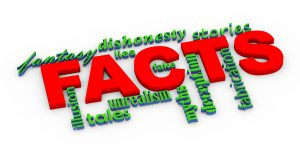What are Critical Thinking Skills?
Critical thinking skills are essential life skills; the more selective colleges seek out students with critical thinking skills because they know how to learn. Employers recruit such students because they have demonstrated a capacity to reason abstractly.
are essential life skills; the more selective colleges seek out students with critical thinking skills because they know how to learn. Employers recruit such students because they have demonstrated a capacity to reason abstractly.
Critical thinking is a form of metacognition: thinking about thinking. Critical thinking means moving from thinking concretely about a topic, such as family, to thinking more abstractly about the idea of the family, which may not be like the student’s own family. It requires them to question the assumptions about the information presented to them. These “higher order“ thinking skills include the ability to
- Know or recall details, main ideas, cause and effect, and/or characteristics: usually with memorization. For example, “I know Harrisburg is the capital of Pennsylvania.”
- Apply and comprehend such information, translating conceptual material into your own words. “A state capital is a kind of Washington DC but for Pennsylvania”
- Analyze and conceptualize, that is, remember as part of larger categories. “All states have capitals. Pennsylvania is a state, therefore, it has a capital and Harrisburg is that capital”
- Synthesize, and put together facts to reach a generalization or concept or definition. “Federalism gives the states some powers, and politicians get together in state capitols to make and pass laws” or “State capitols are places in states where politicians get together to make and pass laws that the governor signs. “
- Make informed judgments and decisions about the world around them based on evidence and reasoning, not emotion or prejudice. “Federalism gives the states some powers, and politicians get together in state capitols to make and pass laws which the people have to obey because a majority of people voted them into office”
Critical thinking means making arguments supported by reasoning and facts, not opinions. Poorly-educated teenagers grow into badly informed adults, who can be swayed by fake news, propaganda and half-truths. Our democracy won’t survive, let alone prosper unless more individuals know and use critical thinking in their daily lives.
Advantage Learning tutors know how to assess the level of a student’s critical thinking and show how faulty assumptions and unsupported opinions can weaken written or oral work, particularly at the college level.